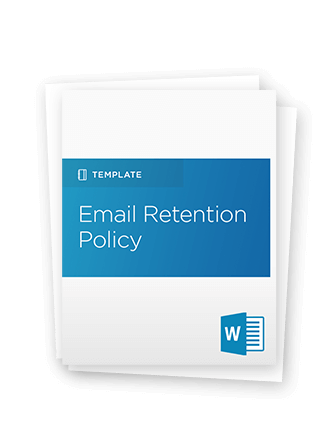Broker-Dealer and Investor Alert: SEC 17a-4 recordkeeping compliance saves time, money, and your reputation

Your grandmother handled all her own investing by emailing her broker. She has bequeathed her investments to you. You need to research several of her more recent “deals” but her dealer lost those records in an office fire. What’s an heir to do?
Fortune smiles upon you in the form of SEC 17a-4 because, thanks to this Securities Exchange Act (Exchange Act) rule which governs the retention and retrievability of broker-dealer records such as Grandmother’s emails, the SEC (Securities and Exchange Commission) can retrieve your grandmother’s records from the third-party vendor that worked with Grandmother’s broker.
Download our eBook on how to choose the best email archiving solution for your needs.
What is SEC 17a-4?
The original Exchange Act of 1934 authorized the SEC to issue recordkeeping rules for broker-dealers, including retention and the furnishing of copies of records “necessary or appropriate in the public interest, for the protection of investors or otherwise in furtherance of the purposes of the Exchange Act,” in the words of the SEC.
Typically yoked together, Rules 17a-3 and 17a-4 require that broker-dealers preserve each transaction record and general business records “in an easily accessible manner.”
Essentially, Rule 17a-4 as amended in 1997 requires that a broker-dealer may opt for electronic recordkeeping, and that brokers/dealers may use any digital storage system that does not allow overwriting or erasure of their records for the required retention period.
Rule 17a-4 also specifies the required retention periods for these records. Many of the records, including communications that relate to the broker-dealer’s business, must be retained for three years; other records must be retained even longer.
Your grandmother’s email communications, for example, are recoverable. Rule 17a-4’s Section (b) states: “Every member, broker and dealer subject to § 240.17a-3 shall preserve for a period of not less than three years, the first two years in an easily accessible place”:
- “Originals of all communications received and copies of all communications sent (and any approvals thereof) by the member, broker or dealer (including inter-office memoranda and communications) relating to its business as such, including all communications which are subject to rules of a self-regulatory organization of which the member, broker or dealer is a member regarding communications with the public. As used in this paragraph (b)(4), the term communications includes sales scripts.” [Subsection 4].
Why is SEC 17a-4 needed?
The SEC states that “the preserved records are the primary means of monitoring compliance with applicable securities laws, including antifraud provisions and financial responsibility standards. Recent events involving the deletion of emails by broker-dealers have affirmed the need to have measures in place to protect record integrity.”
The SEC has this advice for investors: “Be sure to examine your account statements and confirmations carefully to make sure they accurately reflect the date, price, and type of security bought or sold and the certificate number of any security you received from or delivered to your broker. And if you see a mistake, call your broker right away.”
The role of FINRA
The Financial Institution Regulatory Authority (FINRA) – formerly the National Association of Securities Dealers (NASD) – is a self-regulatory organization whose chief role is to ensure fair financial markets in the U.S. Here’s how:
- Deter misconduct by enforcing the rules;
- Discipline those who break the rules;
- Detect and prevent wrongdoing in the U.S. markets;
- Educate and inform investors; and
- Resolve securities disputes.
Investopedia clarifies the different roles of the SEC and FINRA this way: “the SEC is responsible for ensuring fairness for the individual investor and FINRA is responsible for overseeing virtually all U.S. stockbrokers and brokerage firms. In the grand scheme of things, FINRA is overseen by the SEC.”
The year 2007 saw a new focus by FINRA on ensuring that third-party vendors providing records back-up, security, and retention were complying with Rule 17a-4. FINRA began requiring documented proof of their agreements with broker-dealers.
Broker-Dealer best practices
Broker-Dealers now have two significant reasons to comply with Rule 17a-4:
- knowledge that FINRA and the SEC are on the case, and
- assurance that all their electronic recordkeeping – and that of their third party “partner” – will be able to securely protect clients, and protect their own reputation, time, and money.
Looking for fail-safe, off-site email archiving to help you meet the SEC and FINRA’s rules? Intradyn has been a reliable email archiving and e-discovery solutions for businesses of any size. We know how to comply with federal regulations and keep your data safe and retrievable. For more information, please contact us.

